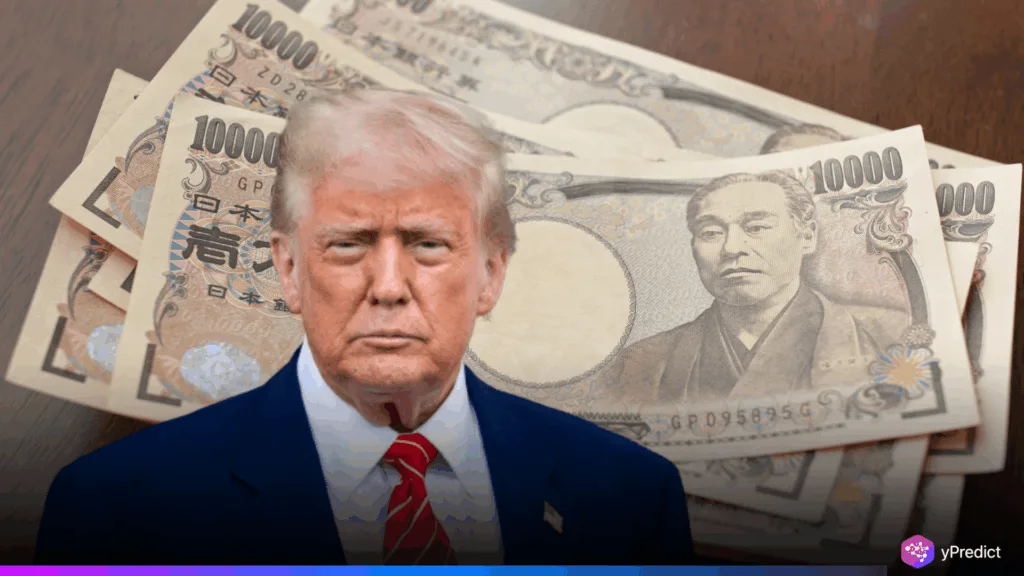
The decline of the yen was made worse by the Trump tariff, even though the Australian dollar unexpectedly rose. Investors are nervous as U.S. President Trump threatens to slap allies such as South Korea and Japan with tariffs.
Meanwhile, the Reserve Bank of Australia gave confidence to the Australian economy a boost by shocking markets by holding off interest rate reductions. Additionally, as uncertainty increases, currency markets are experiencing volatility, and this is only the beginning.
Trump Tariff Impacts Japanese Yen Again
The Japanese yen decline worsened after Trump reignited fears of a fresh trade war. He sent letters to South Korea and Japan on Monday alerting them to 25% tariffs that would take effect on August 1. These were seen as part of the broader consequences of the Trump tariffs that have impacted global markets.
Japan’s prime minister, Shigeru Ishiba, indicated that negotiations with the United States will continue to achieve “mutually beneficial” terms. In addition, market analysts pointed out that uncertainty regarding tariff structures may impact global growth and currency stability. However, EU nations may not be impacted because the 10% baseline rate may not apply to them.
The South Korean won outperformed the yen, increasing 0.66%, following Seoul’s promise to intensify trade negotiations with the US. In contrast, the euro surged 0.4% in relation to the yen, indicating that investors prefer more stable markets.
RBA Holds Shocks Market as Aussie Soars
The Reserve Bank of Australia maintained its cash rate at 3.85%. As a result, the Aussie dollar has increased by over 1%. This reflected a positive but guarded view of inflation and contrasted with market expectations for a rate cut. The Aussie dollar most recently traded at $0.6545, buoyed by the confidence of the central bank. Before making a decision, the board stated that it needed “a little more information,” citing Q2 inflation data that is expected later in July.
Economists claim that the RBA’s pause was impacted by external risks such as US trade policy. Vishnu Varathan of Mizuho noted, “They probably want to wait out this meeting and get into August.”
Trump Tariff May Shape Currency Trends Ahead
If Japan fails to agree on a good trade deal, the depreciation of the yen is likely to continue. Markets are still on edge despite hopes that continued negotiations between Washington and Tokyo will ease tensions. Additionally, currency traders are already feeling anxious due to the Trump tariff impact.
As more tariff-related headlines are anticipated, Asian markets may become more volatile. Analysts caution that the harm to sentiment could persist even if extensions are approved. Meanwhile, Australia’s position appears more stable. External shocks and inflation trends will determine the RBA’s next course of action.
What Comes Next After the Tariff Shock?
The impact of the Trump tariff and the unexpected RBA decision sent contradictory signals to the currency world. Political unpredictability continues to fuel the yen decline story, despite the Australian dollar’s recent surge. Therefore, future inflation data and new tariff announcements should be carefully watched. They will likely impact global currency movements in the upcoming weeks.







